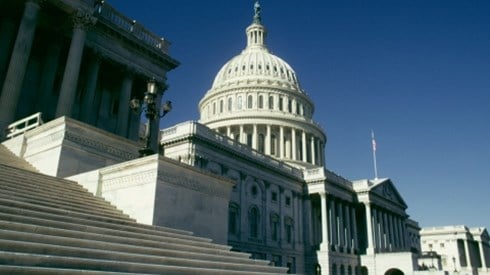Amend the Proposed Nonprofit Property Protection Act

January 15, 2016

The National Risk Retention Association (NRRA) announced January 11, 2016, it is opposing the Nonprofit Property Protection Act (HR 3794) as written. The bill would amend the Liability Risk Retention Act of 1986 to expand the types of commercial insurance that nonprofit risk retention groups (RRGs) would be authorized to write.
NRRA stated the reasons for its opposition are as follows.
- It provides a very small number of RRGs an opportunity to provide property coverage to its members.
- NRRA believes the proposal is potentially detrimental to a larger number of RRGs and purchasing groups, as their ability to provide other coverage would be compromised by an inserted definition of "commercial insurance."
- It also provides a rationale for regulators hostile to the Liability Risk Retention Act (LRRA) to preclude purchasing and risk retention groups from providing contractual liability-based coverage.
The editor of this Captive.com article urges NRRA to reconsider its opposition to the Nonprofit Property Protection Act (HR 3794). In doing so, the NRRA policy-making committee should reflect on the history of the development of the Liability Risk Retention Act of 1986. In 1981, Congress enacted the Product Liability Risk Retention Act. It only applied to product liability and completed operations insurance. It was not until 1986 that Congress enacted the Liability Risk Retention Act (LRRA), which extended the Act to all types of commercial liability insurance.
In the NRRA press release announcing its opposition to HR 3794, Joe Deems, NRRA executive director, said that "NRRA certainly recognizes the importance of the addition of 'property' to the LRRA, and by no means are we against 'nonprofits.'"
However, the NRRA press release position is accompanied by a big "But."
"But, with the very peculiar definition of 'commercial insurance' as set forth in the current legislation, such an addition would potentially hurt more members than it would help," Mr. Deems continued, as quoted in the press release.
The history of the enactment of the LRRA suggests Congress is cautious and frequently incremental in its approach to legislative change. Taking a positive policy position by supporting an amended version of the Nonprofit Property Protection Act (HR 3794) to cover educational institutions that are nonprofits and governmental entity RRGs should be a great small step on a better path to gaining subsequent authorization for all RRGs to write commercial insurance. Certainly, an amendment to the proposed Act can be drafted so all of the RRG community can support an amended proposal.
This Captive.com editor knows from first-hand experience the complexities and costs a risk retention group faces if it desires to expand the scope of coverage for its membership. It must create or purchase a "traditional" insurance company or secure a fronting insurer licensed in the states where it wants to provide property and nonliability coverage. This can be a very expensive, time-consuming, and frustrating process. Trust me. For those interested, I will share the experiences of developing Housing Authority Property Insurance from scratch in a future article. The initial licensing, fronting, and subsequent evolution into a "traditional" mutual insurer has cost the public housing community millions of dollars that could have been better used elsewhere.
Giving the authority for educational nonprofit and governmental entity RRGs to write nonliability coverages without hurting other RRGs and purchasing groups will be a step in the right direction. NRRA should seriously consider changing its policy position and efforts to that end.
January 15, 2016